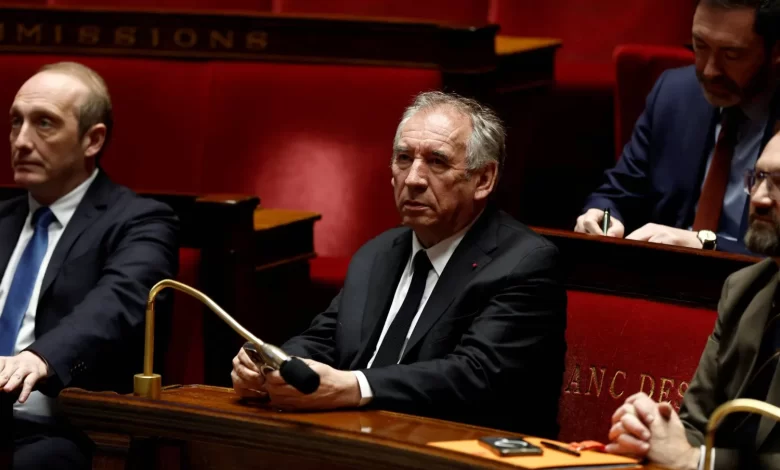French Prime Minister François Bayrou passed the first test of the new minority government he heads on Thursday, after surviving a no-confidence vote called by the radical left after the center-left Socialist Party refused to support the proposal. This marks another episode in a series of political instability that France has not seen in decades.
The “National Rally” party, from the far-right faction to which Marine Le Pen belongs, has already indicated that it will not support the proposal, according to the Reuters news agency.
This means that President Emmanuel Macron’s government will continue to fight another battle without solely relying on support from the far-right. However, Bayrou’s administration remains weak and still faces a grueling battle to pass the 2025 budget, which led to the ousting of his predecessor, Michel Barnier.
131 deputies voted in favor of the proposal today, which is far fewer than the 288 votes required to pass a no-confidence motion. Those who supported the motion were representatives of “France Insoumise,” the Communists, and the Greens, while the majority of Socialists opposed it.
The President of the National Assembly, Yaël Braun-Pivet, said: “The required majority was not reached, and the proposal was not adopted.”
And questions were hovering around the socialists’ position. Bairo sought their support to avoid relying on the “National Rally” party, including by offering to renegotiate the 2023 pension reform, which was not accepted by the leftist bloc.
The motion of no confidence was submitted by the far-left party “France Unbowed” against the minority government formed by the center, marking the fourth government formed in France within a year.
While France’s budget for the current year has not yet been approved, the deputies considered on Thursday the 150th motion of no confidence against a government in the Fifth Republic, the system of governance adopted in the country since 1958.
The Socialist Party decided on Thursday not to support the motion of no confidence after heated discussions, according to one of its representatives.
But the party does not rule out supporting a motion of no confidence that will be put to a vote in a session dedicated to the budget.
The first secretary of the Socialist Party, Olivier Faure, confirmed that his party is still “in opposition,” but is “open to compromises.”
The Prime Minister announced the withdrawal of the highly contested pension reform project for review, and also announced the abandonment of the plan to cut four thousand jobs in the national education system.
French President Emmanuel Macron appointed Bayrou after lengthy consultations aimed at finding a successor to Michel Barnier, whose government lost the confidence of the deputies just three months after taking office.




